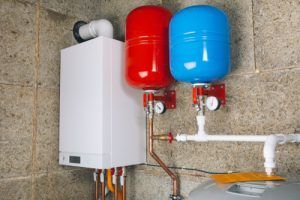Dealing with the Frequently Arising Water Heater Urgent Problems
Dealing with the Frequently Arising Water Heater Urgent Problems
Blog Article
What're your thoughts and feelings about Common Hot Water Heater Problems?

A water heater is just one of one of the most important standard appliances that can be found in a house. With water heaters, you don't need to experience the stress and anxiety of heating water by hand whenever there is a need to take a bath, do the laundry, or the recipes. Nevertheless, there is constantly a possibility that your water heater would certainly act up similar to the majority of mechanical devices.
It is necessary to note any kind of little breakdown as well as tackle it promptly before points leave hand. Most times, your hot water heater starts to malfunction when there is a build-up of sediments as a result of continuous use. As a preventative measure, periodic flushing of your water heater is suggested to avoid debris build-up and also stop practical failure.
Typical water heater emergency situations as well as just how to deal with them
Inadequate hot water
It may be that the water heater can not sustain the warm water need for your apartment or condo. You could upgrade your water heating system to one with a bigger ability.
Changing water temperature level.
Your water heating system can begin producing water of various temperature levels usually ice chilly or hot warm. There may be a need to change either the thermostat or the home heating system of your water heating unit.
Leaky hot water heater storage tank.
In this scenario, you must turn off your water heating unit, allow it to cool down, and carefully look for the resource of the problem. At times, all you require to do is to tighten a few screws or pipe connections in situations of small leakages. If this does not work as well as the leakage continues, you might require to utilize the services of a professional for a proper substitute.
Tarnished or odiferous water
When this occurs, you require to recognize if the problem is from the container or the water source. If there is no funny scent when you run cool water, after that you are specific that it is your water heating system that is damaged. The odiferous water can be caused by corrosion or the build-up of bacteria or debris in the water heater tank.
Verdict
Some house owners ignore little caution and also minor faults in their water heater unit. This only results in more damages and a possible full failure of your home appliance. You should deal with your hot water heater faults as soon as they come up to prevent more expenses and unnecessary emergency problems.
With water heating systems, you do not require to go through the tension of home heating water by hand every time there is a need to take a bathroom, do the washing, or the dishes. It might be that the water heater can't sustain the warm water need for your apartment or condo. Your water heating system can begin generating water of different temperatures usually ice cold or scalding hot. If there is no amusing smell when you run cold water, after that you are particular that it is your water heater that is faulty. The stinky water can be caused by rust or the build-up of germs or sediments in the water heating unit storage tank.
Common Water Heater Issues and What You Should Do
What Type of Water Heater Do You Have?
Before we begin it’s first important that you identify the type of water heater you have on your property. There are two main types of water heaters out there: conventional and high efficiency.
Both of these types of products typically use either gas or electricity to heat power. There are also solar water heaters that use a thermal collector on the roof or yard to heat the water.
While these models are not as common, they can cut heating costs in half. In this article, we will focus on conventional and high efficiency.
How Do My Electric and Gas Water Heater Work?
Though they look similar, electric and gas water heaters work very differently. It’s important to know their basic function because often problems can be specific to the heating source.
In the electric model, a thermostat on the side of the machine detects the temperature of the water in the tank. When the temperature needs to rise electricity flows to a heating element suspended in the water.
Gas models also use a thermostat device — typically with a mercury sensor at the tip and an additional sensor called a thermocouple. The thermocouple detects whether the pilot light is on and controls the flow of gas.
When the thermostat drops below the appropriate level gas is released which becomes ignited by the pilot light. The flame heats the bottom of the water tank which causes hot water to rise and cold water to drop.
This natural circulation continues until the water reaches the desired temperature. Then, the thermostat triggers the gas control valve to shut off the flow of gas.
What Are the Most Common Issues and How Do You Fix Them?
https://happyhiller.com/blog/common-water-heater-issues-and-what-you-should-do/

I was shown that editorial on Common Hot Water Heater Problems through a friend on our other web property. Do you know about another person who is curious about the topic? Take a moment to promote it. Thank you for your time. Kindly come by our site back soon.
Best solutions here. Report this page